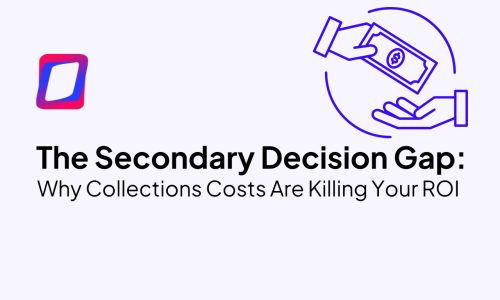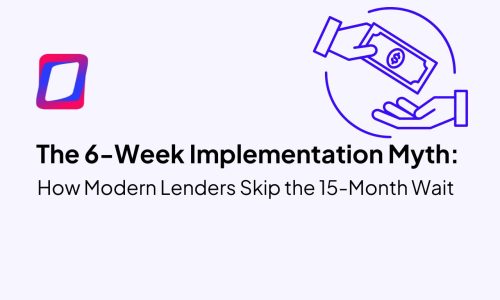Brian Clegg, Sr. Lender Solutions Manager at Black Book, Dives Deep into Vehicle Values and Auto Industry Trends
In this episode of The Lending Link Podcast, we dive deep into the dynamic world of vehicle values and explore the ever-evolving trends in the US and Canadian auto industry. Our guest, Brian Clegg, Senior Lender Solutions Manager at Black Book, brings over 11 years of experience to the table. Together with host Rich Alterman, they shed light on key insights shaping the automotive landscape’s future.
The Road to Expertise: Brian’s Journey
Before we delve into the trends and stats, Brian shares his journey into the automotive finance world. He discusses his background before joining Black Book and the pivotal decision that led him to Gainesville, Georgia, over a decade ago. His experience provides valuable context for understanding the industry’s evolution.
The Financial Landscape: Stats on Car Payments and Consumer Debt
Get ready for some eye-opening statistics! Brian breaks down the numbers on car payments and consumer debt in the auto industry. In the first quarter of 2023, the average car payment for new vehicles reached a record high at $725. Meanwhile, Americans owe a staggering $1.56 trillion in auto loan debt, accounting for 9.2% of overall consumer debt. Understanding these figures is crucial for making informed financial decisions.
Beyond the Book: Black Book’s Data-Driven Approach
Discover how Black Book has evolved beyond being just a book publisher. Brian explains the company’s core product, which involves archiving vehicle data, forecasting present and future vehicle values, and employing advanced analytics. With a dedicated data science team, consulting services, and custom studies, Black Book is at the forefront of industry innovation.
Used Car Market Trends: What’s Driving Depreciation?
The used car market is in constant flux. Brian highlights how Black Book’s data science team helps forecast vehicle values and explores the factors driving used car depreciation versus new car depreciation. You’ll gain valuable insights into market trends from the pandemic to supply and demand dynamics, rental car companies, and lease returns.
Remote Work Impact: Car Ownership in Flux
Remote work policies are reshaping car ownership. Companies adopt different approaches, and Brian discusses the implications for vehicle values and depreciation. Dive into the evolving landscape of car ownership in the age of remote work with insights into ride-sharing services like Uber and Lyft.
Electric Vehicles: Infrastructure Challenges
Explore the challenges of electric vehicle adoption, including customer satisfaction with public charging infrastructure. With limited charging stations and growing demand, the industry faces critical questions about meeting the needs of EV owners.
Oversupply and Pricing: The Tesla Example
Is there an oversupply in the auto industry? Learn how manufacturers like Tesla are adapting by reducing prices on specific models. Discover why electric vehicles are easier and quicker to produce, potentially impacting supply and demand dynamics.
Negative Equity: A Hidden Challenge
Delve into the concept of negative equity in car loans. Understand the complexities when vehicles declared as total losses still have outstanding loans. Timing plays a crucial role in navigating this challenge.
The Digitization of Lending
The pandemic accelerated the digitization of lending across various industries. Brian discusses the increased use of data and solutions in underwriting and integrating digital tools with the DMV.
The Future of Auto Finance
As we wrap up, Brian shares his thoughts on trends in the loan lifecycle, including portfolio valuations, real-time market information, and the evolving role of data-centric teams across the US.
This episode provides an in-depth look at vehicle values, market trends, and the challenges and opportunities that lie ahead. To catch up on all episodes, visit www.GDSLink.com/TheLendingLink, and don’t forget to leave us a review on LinkedIn, YouTube, or your preferred listening platform to let us know your thoughts!
About Brian Clegg:
Brian Clegg is the Sr. Lender Solutions Manager at Black Book. During his 11+ years at Black Book, he consults with Auto Finance Lenders across the U.S and Canada on utilizing Black Book‘s vast data sets to reduce risk and increase profitability throughout the loan life cycle. He was recognized as a 2018 Auto Remarketing 40 Under 40 Honoree and prior to Black Book he led multiple teams at Wells Fargo Financial/Auto, as a 2-time STAR performer while leading the Southeast U.S. in consumer loan production.
Be sure to follow Brian and our host Rich on LinkedIn, and for the latest GDS Link updates and news, follow us on Twitter and LinkedIn. You can subscribe to the Lending Link on Apple Podcasts, Spotify, Google Podcast, YouTube, or wherever you prefer to listen to your podcasts!
Recent articles

The Secondary Decision Gap: Why Collections Costs Are Killing Your ROI
Read article
How a Multi-Lender Marketplace Scaled Embedded Finance and Stopped $300K in Fraud
Read article





